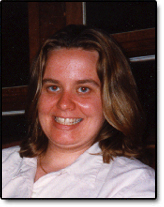A new pedagogy of laboratory instruction developed by Associate Professor Dawn Rickey from Colorado State University has been awarded the Inquiry-Based Instruction (IBI) prize by Science magazine. Science's IBI Prize was conceived to recognize exceptional materials that could be employed to teach preliminary science courses across schools at the college level.
 Associate Professor Dawn Rickey
Associate Professor Dawn Rickey
The pedagogy materials are expected to promote learning by piquing the natural curiosity of students towards the nature of the world rather than classroom instructions on the established principals and facts. The materials should be of an independent course module structure that not only facilitates an understanding of science but also enables the students to produce and assess scientific evidence to support their understanding.
The course developed by Professor Dawn Rickey is called “Exploring Gold Nanoparticles”. Rickey conceived this pedagogy when she realized during her stint as Chemistry teaching assistant for undergraduates at University of California (UC) at Berkeley that the students did not really understand the laboratory procedures and the concept underlying those procedures although they exhibited good capabilities in mathematics. Rickey moved on to teaching graduate science and maths when she developed the lab instruction method named as the MORE (model, observe, reflect, explain) Thinking Frame in conjunction with UC professor, Angelica Stacy and graduate student, Lydia Tien.
The fundamental approach to the MORE system is in allowing students to begin the lab study with a model of what they presume will take place in a particular lab class before letting them work with the materials. While traditional instruction methods consist of providing information to the students about previous research in the area of study, the MORE method allows them to discover the aspects of the topic of interest as if they are the first to study it. The students then have to conduct experiments to validate their initial assumptions. The MORE method was found to improve the students’ comprehension and consequently their scores when their performance was compared with a control group of students not exposed to the MORE form of teaching.